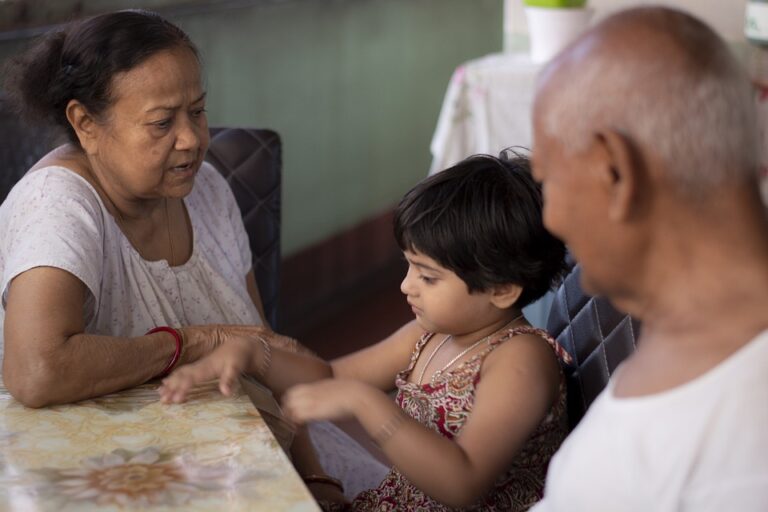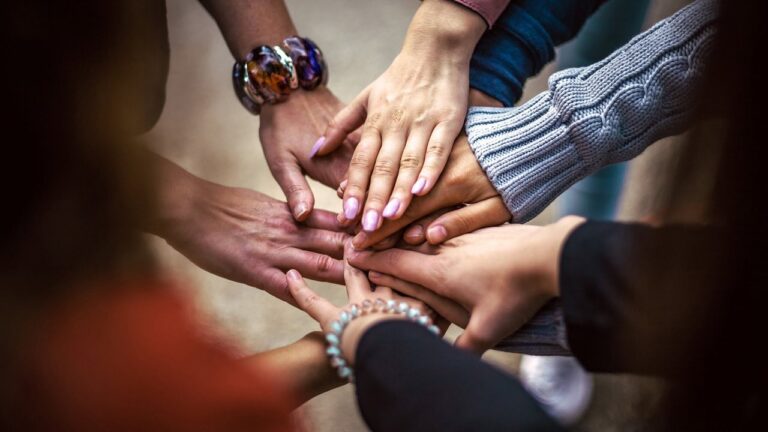Cross-Cultural Marriages

In an increasingly globalized world, the boundaries that once separated cultures are beginning to blur. As people venture beyond their borders in search of experiences, opportunities, and love, cross-cultural marriages are becoming more common.
These unions not only celebrate diversity but also bring a unique set of challenges and rewards.
The Allure of Cross-Cultural Marriages
The appeal of cross-cultural marriages lies in the rich tapestry of experiences they offer. When two individuals from different cultural backgrounds come together, they bring with them a wealth of traditions, customs, and perspectives.
This blend can create a vibrant and enriching environment, offering both partners the opportunity to learn and grow in ways they might not have anticipated.
The Beauty of Diversity
Diversity is often at the heart of what makes these marriages so captivating. Each partner brings their own cultural heritage, which can lead to a fusion of traditions, languages, and customs.
This diversity can be expressed in various aspects of life, from cuisine and holiday celebrations to parenting styles and communication methods.
Learning and Growth
Cross-cultural marriages provide an unparalleled opportunity for personal growth and learning. Partners are exposed to new ways of thinking and living, encouraging them to broaden their horizons and challenge their preconceived notions.
This learning process fosters empathy and understanding, key components of a strong and lasting relationship.
Challenges in Cross-Cultural Marriages
While cross-cultural marriages offer numerous benefits, they also present unique challenges. Navigating these challenges requires patience, open-mindedness, and a willingness to compromise. Here are some common challenges faced by couples in cross-cultural marriages:
Language Barriers
Language can be a significant hurdle in cross-cultural marriages, especially if partners don’t share a common native language.
Miscommunications can lead to misunderstandings and frustrations. However, this challenge also presents an opportunity for couples to learn each other’s languages, which can strengthen their bond and enhance communication.
Different Value Systems
Cultural backgrounds often come with distinct value systems that can clash in a marriage. For example, one partner might prioritize family obligations, while the other places more importance on individual freedom. Recognizing and respecting these differences is crucial for a harmonious relationship.
Family Expectations
Family dynamics can be complex in cross-cultural marriages. Each family may have specific expectations regarding traditions, roles, and responsibilities. Couples must navigate these expectations while establishing their own family identity, which can require delicate negotiation and diplomacy.
Religious Differences
Religion can play a significant role in cultural identity, and differing religious beliefs can be a source of tension. Couples must find ways to honor each other’s beliefs and practices, which might involve participating in or supporting religious ceremonies and observances different from their own.
Strategies for Success in Cross-Cultural Marriages
Despite the challenges, many cross-cultural marriages thrive. Successful couples often employ a variety of strategies to help them bridge cultural gaps and build a strong partnership.
Open Communication
Effective communication is the cornerstone of any successful relationship, but it is especially important in cross-cultural marriages.
Partners should strive to communicate openly and honestly about their expectations, concerns, and needs. Regular check-ins and discussions can help prevent misunderstandings and ensure both partners feel heard and valued.
Embracing Cultural Exchange
Rather than seeing cultural differences as obstacles, successful couples view them as opportunities for enrichment.
Embracing cultural exchange—whether through cooking each other’s traditional dishes, celebrating diverse holidays, or learning about each other’s history—can strengthen the bond between partners and foster mutual respect.
Creating a Shared Culture
While each partner brings their own cultural background to the marriage, creating a shared culture is essential for unity.
This involves blending traditions and customs to form a new, unique family culture. Couples should work together to decide which traditions to incorporate and how to celebrate their diversity in a way that feels authentic to both.
Inspiring Stories of Cross-Cultural Marriages
Many couples have successfully navigated the challenges of cross-cultural marriage, inspiring others with their stories of love and resilience. Consider the story of Emma and Raj, who met while studying abroad.
Despite initial language barriers and differing family expectations, they found common ground in their shared passion for travel and adventure. Through patience and understanding, they built a life together that honors both of their cultural heritages.
Another inspiring story is that of Amina and Tom, who overcame religious differences to create a strong partnership rooted in mutual respect and love. By attending each other’s religious services and participating in interfaith dialogues, they developed a deeper appreciation for their partner’s beliefs and practices.
The Future of Cross-Cultural Marriages
As globalization continues to increase, the prevalence of cross-cultural marriages is likely to rise. These marriages will play a crucial role in fostering greater cultural understanding and acceptance worldwide.
Children born into cross-cultural families often grow up with a broader worldview and a deep appreciation for diversity, which can contribute to a more inclusive and harmonious society.
Conclusion
Cross-cultural marriages are a celebration of diversity and a testament to the power of love to transcend cultural boundaries. While they present unique challenges, the rewards of building a life with someone from a different cultural background are immeasurable.
By embracing diversity, communicating openly, and creating a shared culture, couples can navigate the complexities of cross-cultural marriage and build a future that is rich in love and understanding.






